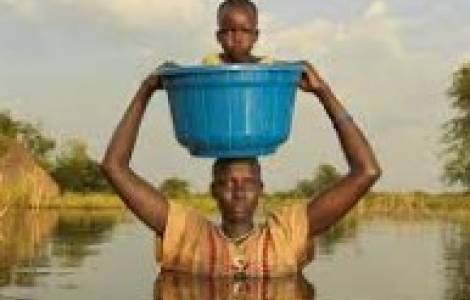
Jeremie (Agenzia Fides) - Spirit of survival, precariousness, insecurity, this is the climate in which the population in Haiti lives. "People desperately need an end to violence and insecurity, both food and physical," said UNICEF Director-General Catherine Russell after a joint mission with World Food Program Executive Director Cindy McCain, in Haiti.
The Caribbean island has the second highest rate of food insecurity in the world. "The hunger crisis in Haiti is invisible, unprecedented and remains unresolved. Almost 5 million Haitians struggle to eat every day," they declared after a meeting with local authorities to urge greater commitment to children and women. vulnerable families facing endemic violence, deadly natural disasters and the resurgence of cholera (see Fides, Service 14/6/2023).
The UN body estimates that a total of 5.2 million people need emergency humanitarian aid, including almost 3 million children. Some 4.9 million people have difficulty eating and more than 115,000 children under the age of five are expected to suffer from life-threatening malnutrition this year, a 30% increase compared to last year. The healthcare system is on the verge of collapse, schools have been attacked by armed groups and civilians are terrified and deprived of their livelihoods. In the most dangerous neighborhoods of the capital, women and children suffer staggering levels of sexual violence. The deadly floods and the earthquake in June (see Fides, 12/6/2023) were yet another blow to Haiti's vulnerability to climate change and natural disasters. (AP) (Agenzia Fides, 26/6/2023)